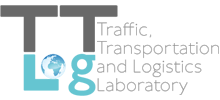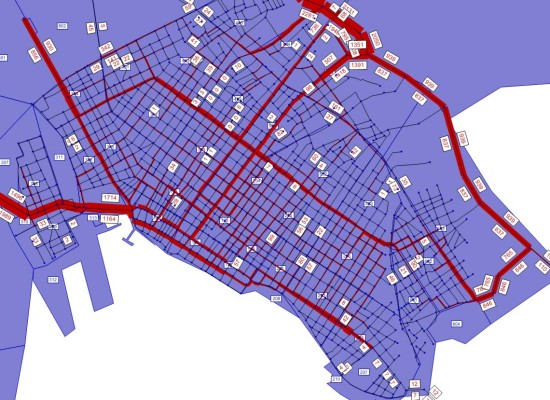The course treats issues associated to the organization, management and control of the transportation networks, interchanges, modes and infrastructures with focus both on passenger and cargo / freight transport. The course introduces advanced transport design models and analyzes the basic and fundamental transportation systems and their attributes, disciplines and routines in order for the students to familiarize with the relative concepts and being in position of evaluating alternative solutions supporting the decision making process in the domain of transport. The objective of the course is learning and understanding the basic concepts and knowledge needed in transport strategy and planning for the application of a system engineering approach. The role of each transport mode (road, rail, air, sea, inland maritime) is examined in the framework of an intermodal, integrated and combined transport system. With the support of paradigms and case studies the scientific methods, the new technologies and the use of intelligent transport systems (ITS) which are necessary for the good organization, coordination and the management of all the factors (human, vehicle, infrastructure, goods) interfering with the logistics, the transportation and supply chain and the freight distribution, are analyzed and demonstrated. Finally, some focus is also set on business models, as well as on discrete choice models for mode or route choice or behavioral models, supporting the decision making process through the elaboration of a multi criteria evaluation and comparison of the different available alternative options.
The students who will attend the classes of the course will be able to: 1. Acquire considerable information pertaining to the typology, organization, operation, management and generic attributes of intermodal passenger and freight transport interchanges. 2. Be informed about the legislative framework and policies applied during the transportation planning both in Greece and abroad. 3. Become familiar with terms and techniques such as the system optimization. 4. Get to knowing of the way the operational, management and administrative framework of and integrated intermodal transport interchange is structured, including business model analysis. 5. Identify and tackle with situations and problems including the use of models and algorithms associated with transportation planning. 6. Develop and set up an integrated multi actor multi criteria analysis for the investigation of the effectiveness and the comparison of alternative solutions’ performance during the process of decision making. 7. Develop and set up an integrated impact analysis and assessment framework pertaining to transport planning projects and initiatives. 8. Use the SPSS software to set up and solve problems and also evaluate the produced results and findings.
E-Class: Design and evaluation of
transportation systemsVisit Online e-Class Course


![[ File # csp6143653, License # 2517429 ]
Licensed through http://www.canstockphoto.com in accordance with the End User License Agreement (http://www.canstockphoto.com/legal.php)
(c) Can Stock Photo Inc. / dny3d [ File # csp6143653, License # 2517429 ]
Licensed through http://www.canstockphoto.com in accordance with the End User License Agreement (http://www.canstockphoto.com/legal.php)
(c) Can Stock Photo Inc. / dny3d](http://ttlog.civ.uth.gr/wp-content/uploads/2016/02/t1-550x400.jpg)

